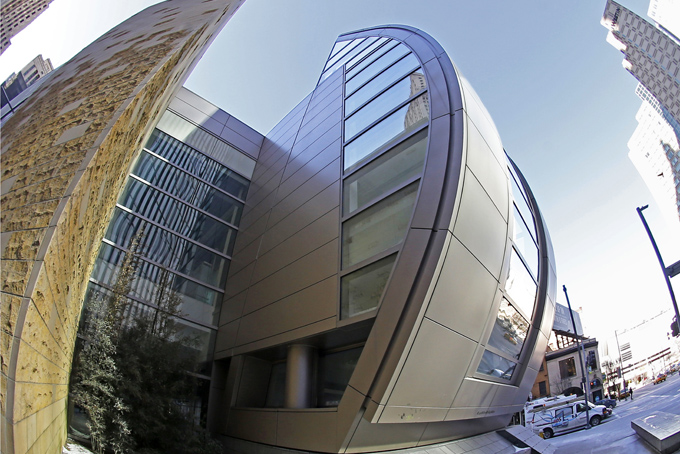
PITTSBURGH (AP) – A bold attempt to create a world-class African-American cultural center in Pittsburgh is collapsing, but local leaders are exploring new options even as they consider why the project failed.
The August Wilson Center opened to great fanfare in 2009 after a broad range of public and private institutions pitched in to raise tens of millions of dollars and construct a new 65,000-square-foot building. It was a heady time for followers of the Pulitzer Prize-winning playwright, who grew up in Pittsburgh and died in 2005. He is best known for his 10-play cycle that chronicles Black life in America, and a Broadway theater is named after him in New York City. Many hoped the Pittsburgh center would become another star in the transformation of the city formerly known for its steel mills.
But now, as a judge has approved selling off the building to settle a mortgage default and other debts that total about $10 million, some are reflecting on the accomplishments and failures of the center.
“It would be very sad if it went away, but it would not be surprising,” said C. Patrick Tyndall, a theater professor based in New York who wrote his dissertation on Wilson.
The Wilson Center was conceived as a grand venue for theatre, dance, and music, but Tyndall noted that “money is always the problem” for serious arts projects, even in New York.
“It probably was too big in the beginning,” Tyndall said, though he praised the goal to honor a legendary and highly influential figure in the arts and African-American culture.
Allegheny County Executive Rich Fitzgerald said he and Pittsburgh Mayor Bill Peduto are working with corporations, foundations and community stakeholders on ways to save the center.
“It’s a very important asset, culturally,” Fitzgerald said. He said he doesn’t know why the original plan failed.
Others have noted that the recession began just before the center opened and that original estimates of paid visitors were far too optimistic. Plans for a restaurant never came to be, either.
At a public hearing Friday, court-appointed receiver Judith K. Fitzgerald said by phone that prospective buyers of the building will have to submit proposals by March 31. A sale can’t be finalized without the approval of the judge overseeing the liquidation. She also told local media that arrangements are being made to appraise and sell works of art at the Wilson Center.
Some area residents are suggesting the center could be saved in some form if it partners with another organization.
Mark Brentley, a member of the Pittsburgh Public Schools Board, said he’s working on the idea of the school system acquiring the building.
“The rightful next owner of that facility should be” the school system, Brentley said. “It would be a perfect fit. We would continue to use it as some form of culture and arts center.”
Tyndall said he loves the idea of some stable entity coming in and helping, but he noted that even cultural and arts centers that partner with universities face financial challenges. And the Pittsburgh Public Schools district, like many others, is under financial pressure.
Tyndall questioned whether the school district has the money to take on the Wilson Center.
E. J. Strassburger, a prominent Pittsburgh attorney who is trying to find ways to save or transform the center, wrote in an email that any plan has to address several key issues.
The center needs a source of funds to resume operations, a realistic strategic plan for self-sustaining operation and capable staff and board members. And all those pieces probably need to be in place within four to six months to satisfy court proceedings.
“It’s all pretty basic, but easier said than done,” Strassburger said.